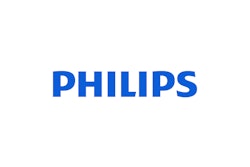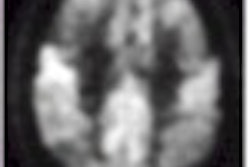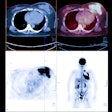One by one, single-modality vendors continue to be swallowed up by large multimodality players. In the latest chapter of the consolidation saga, Royal Philips Electronics, the parent of Philips Medical Systems, announced today an agreement to acquire nuclear medicine and radiation therapy firm ADAC Laboratories for approximately $426 million (or $18.56 per share) in cash.
For Netherlands-based Philips Medical Systems, the deal provides an entry into the nuclear medicine market. And it will surely enhance Philips’ longstanding strength in cardiac imaging, owing to frequent use of nuclear studies in heart imaging. Philips will also seek to tap into rising market interest in PET imaging, which has grown rapidly this year, in large part due to expanded Medicare reimbursement.
The announcement caps a turbulent period for ADAC, once a model for how independent firms can survive -- and even thrive -- in the medical imaging marketplace. Although the Milpitas, CA-based firm appeared early in the year to be on the rebound from the financial difficulties that plagued it in previous years, ADAC’s comeback hit a snag last month. The vendor announced that fourth-quarter (end-October 2) revenues and earnings would come in well below expectations.
In response to the disappointing financial results, ADAC indicated it would divest its underperforming HealthCare Information Systems business in a bid to focus on its core nuclear medicine, PET, and radiation therapy products. Camtronics Medical Systems has bought the cardiology information systems portion of ADAC HCIS, while the remainder of HCIS would be acquired by information systems firm Cerner.
ADAC’s decision to sell to Philips is also symptomatic of the harsh competitive environment facing single-modality vendors, as equipment-buying trends like group purchasing continue to favor multimodality equipment procurement. In a similar deal, Siemens Medical Engineering closed on its purchase of ultrasound vendor Acuson last week.
The merger of ADAC and Philips will strengthen both the breadth and depth of the products and services each company can offer, according to ADAC chairman and CEO Andrew Eckert. He also believes that ADAC’s customers will benefit from the increased resources available for product development, and that Philips’ distribution strength will lead to significant growth in ADAC’s global presence.
The companies' product lines are a good match. Philips is the only major multimodality vendor that does not offer nuclear medicine equipment, and ADAC's radiation therapy business will also add an interesting wrinkle to the Dutch company's portfolio.
In an interesting historical tidbit, Philips left the nuclear medicine business in 1991 as part of a decision to focus on modalities that the company felt were more promising, such as MRI, CT, and x-ray. When it left the field, Philips licensed some of its gamma camera technology to -- you guessed it -- ADAC Laboratories.
The transaction announced today will consist of a cash tender offer for each outstanding share of ADAC stock, followed by a cash merger to acquire any shares not previously tendered. Philips expects to commence its cash tender offer tomorrow. ADAC’s board of directors has unanimously determined that the tender offer and the merger are in the best interest of ADAC's shareholders. The board unanimously recommended that its shareholders tender their shares pursuant to the tender offer.
The cash tender offer is subject to Philips acquiring at least 90% of all outstanding ADAC shares calculated on a fully diluted basis in accordance with the merger agreement. However, if more than 50% but fewer than 90% of such shares are tendered into the offer, Philips will under certain circumstances reduce the number of shares subject to the offer to 49.9% of the outstanding shares and subsequently pursue a merger with ADAC. The offer is also subject to the receipt of regulatory approvals and other customary conditions.
By Erik L. RidleyAuntMinnie.com staff writer
November 13, 2000
Related Reading
Camtronics completes acquisition of ADAC cardiology group, November 13, 2000
Cerner to buy ADAC’s information systems division, October 24, 2000
ADAC plans to sell HCIS unit as Q4 results sag, October 10, 2000
ADAC results surge in Q3, July 28, 2000
PET sales drive ADAC's Q2 results, April 28, 2000
Let AuntMinnie.com know what you think about this story.
Copyright © 2000 AuntMinnie.com





















